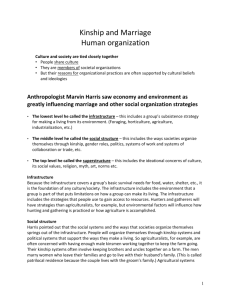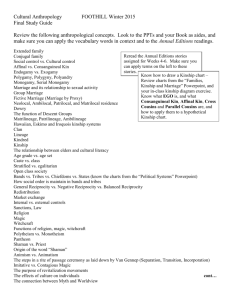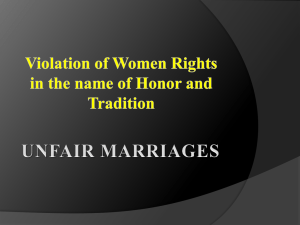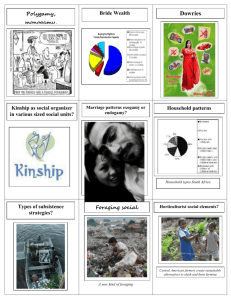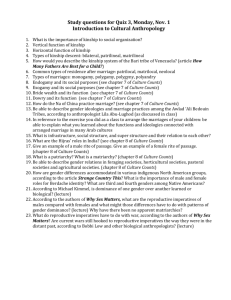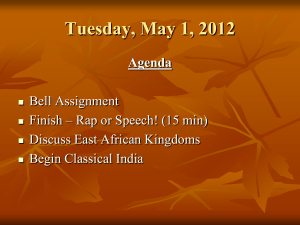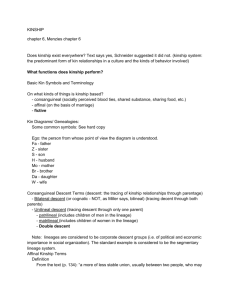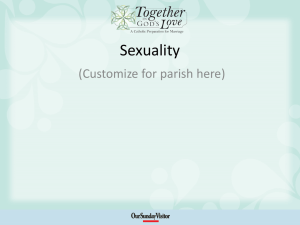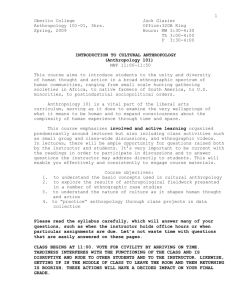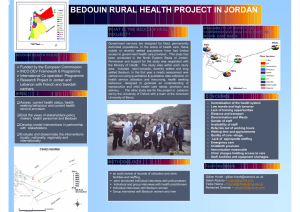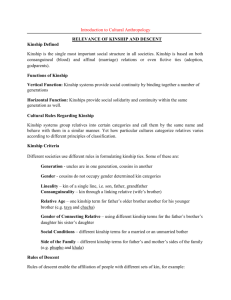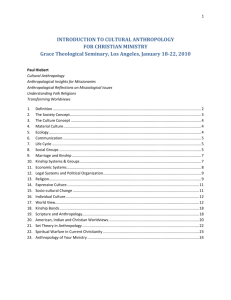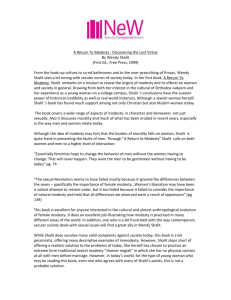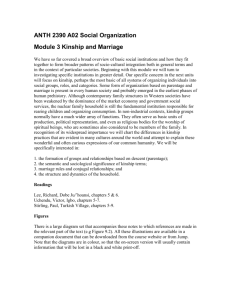Kinship and Marriage
advertisement
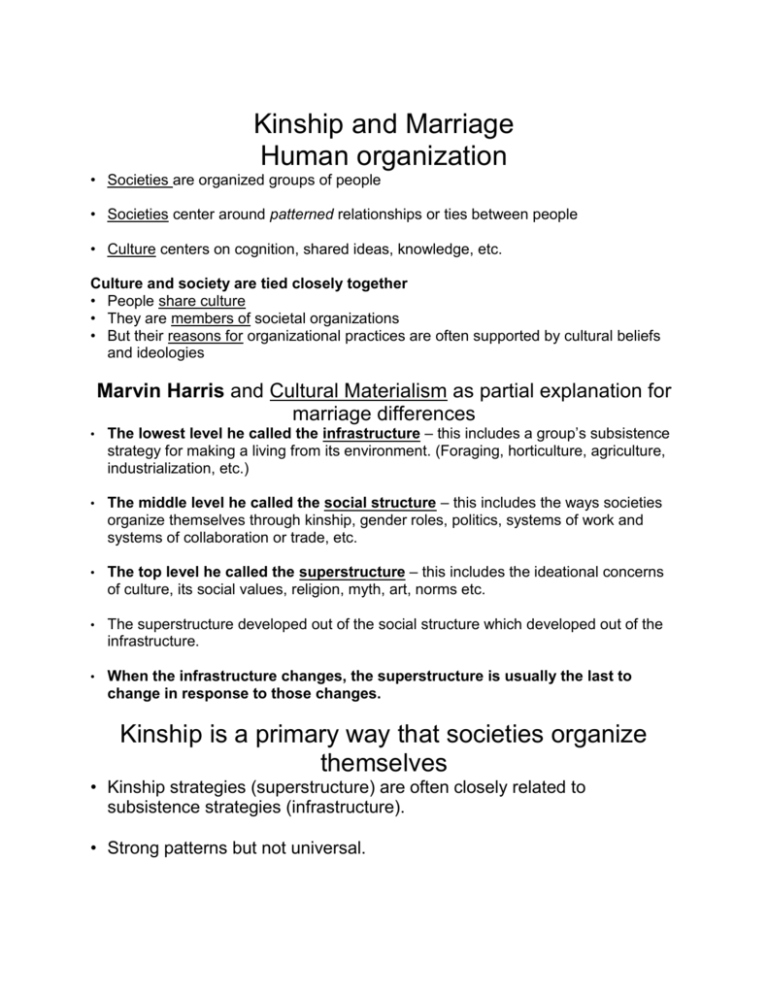
Kinship and Marriage Human organization • Societies are organized groups of people • Societies center around patterned relationships or ties between people • Culture centers on cognition, shared ideas, knowledge, etc. Culture and society are tied closely together • People share culture • They are members of societal organizations • But their reasons for organizational practices are often supported by cultural beliefs and ideologies Marvin Harris and Cultural Materialism as partial explanation for marriage differences • The lowest level he called the infrastructure – this includes a group’s subsistence strategy for making a living from its environment. (Foraging, horticulture, agriculture, industrialization, etc.) • The middle level he called the social structure – this includes the ways societies organize themselves through kinship, gender roles, politics, systems of work and systems of collaboration or trade, etc. • The top level he called the superstructure – this includes the ideational concerns of culture, its social values, religion, myth, art, norms etc. • The superstructure developed out of the social structure which developed out of the infrastructure. • When the infrastructure changes, the superstructure is usually the last to change in response to those changes. Kinship is a primary way that societies organize themselves • Kinship strategies (superstructure) are often closely related to subsistence strategies (infrastructure). • Strong patterns but not universal. Some functions of kinship Vertical function • Provides social continuity by binding successive generations together Horizontal function • Solidifies society through marriage by tying together different groups, creating alliances, and solidarity Types of descent • Foragers were/are often bilateral • Horticulturalists were/are often matrilineal but many were/are patrilineal • Pastoralists were/are primarily patrilineal • Agriculturalists have tended to be patrilineal Residence after marriage • Patrilocal • Matrilocal • Neolocal Awlad ‘Ali Bedouin Tribes Egypt, Libya and the Western Desert • Herded camels, sheep, and goats • Strong governmental goal of assimilation • Although they were forced to be more sedentary, they maintain strong Bedouin identity and consider themselves distinct from non-Bedouins Blood is the basis of Awlad ‘Ali identity Key principals of social organization: • A tribal order based on the closeness of paternal relatives Tied to a code of morality: - Honor - Modesty • • • • Nobility of origin (blood) Honor Sincerity Generosity (especially honoring guests) • Fearlessness and courage even though tribal warfare is gone • Values of the warrior Those who cannot realize self mastery can achieve some respect and honor through the modesty code Independence and self mastery are the way to honor. Why women cannot achieve this. • Women have little control over sexuality and reproduction • Men want to control them because of their value as reproducers • So through sexuality and pregnancy, women lose control over their own bodies • A woman’s children make her more dependent on her husband and increasingly under his control • Her choice is to attain some measure of honor through modesty Blood relations are given priority • Even if a man very much loves his wife, it is shameful to value marital ties over blood ties • He cannot let anyone know that he loves his wife • Love ties between a man and a woman are connected with loss of self mastery and autonomy • Modesty requires that men and women express lack of interest in sexuality • A woman retains her tribal affiliation throughout her life and should side with her own kin in disputes with her husband’s kin Sexuality is a threat to the social order in almost any society • Bedouin love matches are traditionally opposed on principal • They violate the ideal of familial control over marriage • They represent individual initiatives and defiance of the system A Bedouin family in their tent in the Syrian Desert • The paternal first cousin of a girl is ultimately responsible for preventing a love match • Custom gives him the right to claim her in marriage • His kinsmen pressure him to preserve the kin group’s honor • She has behaved immodestly and threatens the honor of the kin group
